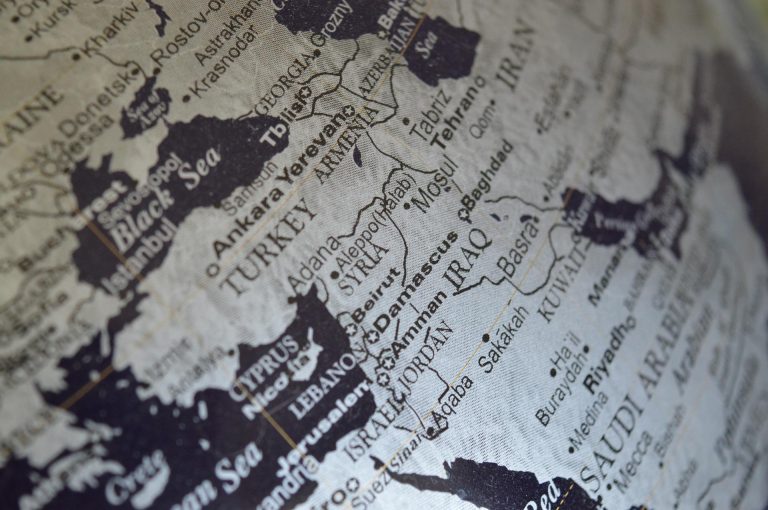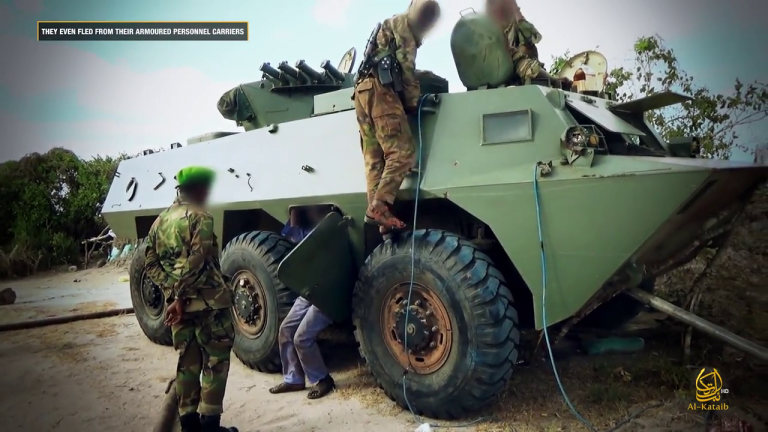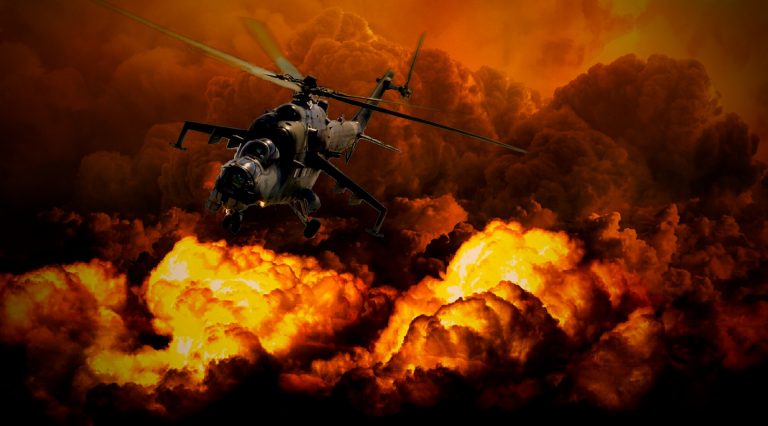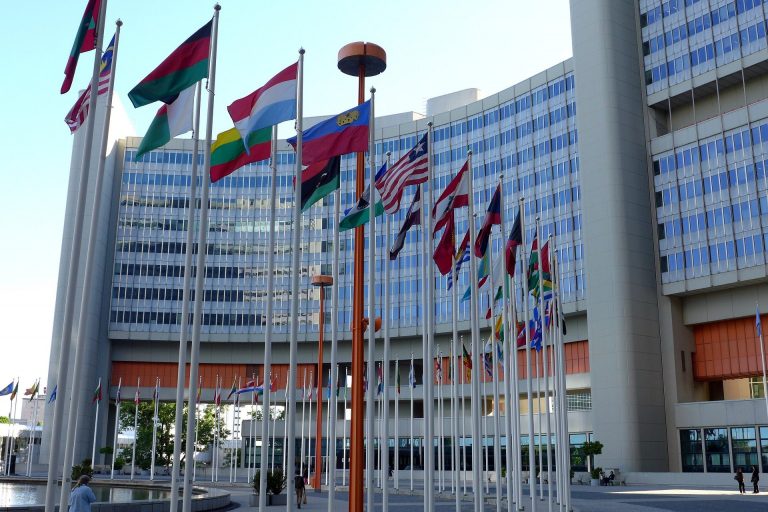This is part one of a two part series. Part two is posted here.
On August 11, 2021, the Oromo Liberation Army (OLA) announced that it has entered into a military alliance with the Tigray Defense Forces (TDF) with OLA’s leader, Kumsa Diriba, expressing their shared goal of “overthrowing this government (GoE) militarily”. OLA and TPLF (which controls TDF) are recognized as terrorist organizations by the Ethiopian constitution, with TDF existing in a legal lacuna that gives it the flexibility to work openly with American, European, and regional organizations.
So far, OLA and TDF have not been able to physically meet in Ethiopia, which means that their agreement was negotiated outside the country, and their combat operations are coordinated by a coordination center outside Ethiopia. This coordination center enables their leaders to communicate with each other, share battlefield plans, strategize together, receive advice, and coordinate their offensives against ENDF without fear of GoE disrupting their communication channels. In fact, Kumsa Diriba acknowledged that OLA and TDF do “share battlefield information and fight in parallel” though they are “not fighting side by side”, and then hinted at an upcoming political alliance to create an armed political coalition against the Government of Abiy Ahmed Ali.
It can be deduced that there is a plan to proliferate rebel groups through the formation of new armed groups, like the oddly announced Agew Liberation Front and Gambella Liberation Front, with an unacknowledged goal of obscuring legal lines between terrorist organizations and rebel groups. Thereafter, these multiple rebel groups would form a rebel coalition. A similar strategy has been used in Syria where the Basma program used narrative management to mask differences between the secular Syrian opposition and Salafi-jihadi groups so that they can be presented as a united rebel front that is fighting against the government of Bashar al-Assad.


In Ethiopia, the rebel coalition being formed comes with a grand political umbrella, thus giving it the legitimacy of a united political actor using armed force to execute a form of institutional regime change. When speaking to Cara Anna, a journalist based in Nairobi, Diriba acknowledged that some people within OLA were doubtful of the TDF-OLA alliance but he was confident that the alliance would succeed. He then adds that if TDF betrays OLA after capturing power, then “there will be chaos in Ethiopia and it could collapse as a state” (ibid). This statement confirms that the immediate goal of this alliance is institutional regime change, which can lay the ground for greater decentralization of power instead of violent state fragmentation (which is the worst form of state collapse).
Even so, most institutional regime changes fall under covert foreign-imposed regime change (FIRC). A covert FIRC needs to be coordinated and controlled by an agency that is capable of overthrowing targeted governments. If multiple agencies are working together to achieve covert FIRC using domestic armed groups, then they need to coordinate their activities through a centralized fusion center such as C2FC. Still, a covert FIRC can be defeated with a good integrated defensive-offensive realism.
Defensive and Offensive Realism
Defensive realism mandates that Ethiopia accumulates as much diplomatic and military power as possible in order to preserve its vital interests, while offensive realism capacitates the Federal Republic to deploy this power in a measured way to deal with both friendly and hostile forces in international and domestic domains. The desired goals for these actions are to preserve state viability and national security. This is the ideal state of integrated defensive-offensive realism, which allows for power accumulation and measured projection of this power. At the moment, this is not the case for Ethiopia, partly due to resource constraints, state contraction, and limited goodwill of traditional allies.
When a nation-state is waging a war for survival with limited resources, the influence of advisors can determine whether the country survives or not. This is because bad advice can lead to profligate wastage of military and diplomatic resources that are in short supply, which ultimately weakens the state and makes it vulnerable to state collapse.
Bad Advisors and a Cowardly Leader are a Risk to State Survival – A Lesson from the Last Arab Caliphate
A lesson can be learned from the bad advice given to Caliph Al-Musta’sim Billah by his grand Vizier, Ibn al-Alqami, who advised the Caliph to reduce the pay of soldiers and send 35,000 soldiers home (including the bravest and most experienced soldiers) at a time when tens of thousands of Hulagu’s troops were marching towards Baghdad. This kind of advice dysregulated the Caliphate’s defense plans and enabled the Mongols to achieve a relatively easy victory in 1258CE after besieging Baghdad. This Mongol victory ended the Sunni Golden Age and Baghdad has never recovered its splendor ever since. This disastrous outcome can be contrasted to what happened a century earlier in 1157CE when Caliph Al-Muqtafi and his vizier, Awn al-Din ibn Hubayra, prudently deployed the limited Caliphal military resources to end the siege laid on Baghdad by Seljuk Turks. These lessons highlight the significance of the quality and utility of advice that guides policies that impact the vital interests of a country.
Realism, being a policy tool, is quite vulnerable to bad advice. Had Caliph al-Musta’sim helped Rukn ad-Din to assassinate Hulagu Khan in 1256CE, or at least let his military commanders prepare the army to fight the Mongols after receiving reports that Mongols were campaigning in ElBruz mountains; the caliphate would not have been destroyed in 1258CE, and the Mesopotamian agrarian civilization could have been saved. It could have even prevented the Hejaz from falling under centuries of Turkish domination. His predecessor, Caliph Mustansir, had defeated all Mongol offensives against Baghdad, but Mustasim was a coward and irresolute leader who was easily manipulated by his advisors and imperial officials.

Mongol ruler, Genghis Khan, initially planned to kill tens of millions of conquered Chinese farmers so that their lands revert into pasture lands for grazing animals. In Mesopotamia, the birthplace of agriculture in the Middle East, Mongol hordes destroyed the 5,000 years old agrarian civilization after sacking Baghdad in 1258AD, and this caused mass starvation that killed millions. As nomadic pastoralists, “the Mongols saw such destruction of agricultural resources as a means to prevent their victims from recovering and fighting back.” Had al-Mustasim defeated Hulagu Khan, millions of lives, immeasurable agricultural resources, and priceless written literature would have been saved.
Offensive Realism
Using the framework of offensive realism, it can be confidently argued that Ethiopia – as an ideal rational nation-state operating in an anarchic and highly dynamic international system – cannot accurately decipher the real intentions of policies adopted by partner nation-states (in this case, the USA, Egypt, and Sudan) towards it. This means that the Government of Ethiopia (GoE) cannot accurately valuate how much threat to its core interests these policies present. Additionally, the Government of Kenya (GoK) presents an ambiguous set of policies concerning its relationship with GoE, and this is primarily due to the friction in GoK between the guarded pro-Ethiopia camp and the reactionary camp biased towards protecting partisan clan and economic interests in Jubaland region of Somalia.
When a nation-state is waging a war for survival with limited resources, the influence of advisors can determine whether the country survives or not. This is because bad advice can lead to profligate wastage of military and diplomatic resources that are in short supply, which ultimately weakens the state and makes it vulnerable to state collapse.
International System can be Exploited
As is widely acknowledged, international politics that shapes global order is dominated by global powers. Currently, there are 3 entities that can be described as global powers – the USG, the European Union (EU), and the ascendant neo-Confucian China set on regaining and exceeding the splendor of the Tang Dynasty. Russia can be considered a global military power, but its economy and soft power are far overshadowed by that of China, USA, and the EU.
These global powers do conflict and cooperate with each other, but they all strive to create a rational balance of power that has limited fluidity. Fluidity simply means that power does not drastically or suddenly shift among nation states, especially among global powers, as this can cause transnational havoc and mass human suffering as was witnessed in the immediate aftermath of the collapse of the Soviet Union.
Equally, this balance of power is quite delicate as each global power seeks to undermine its rival, and in this case, the West has used foreign policy tools and weaponized international relations with allies to undermine China and the Russian Federation. In return, China has countered by deploying its offensive realism tools, including military diplomacy, and soft power tools of trade, investment, and grand projects. In fact, the Belt and Road Initiative (BRI) is the signature global project for deploying soft power across the continents of Asia, Europe, and Africa. This has denied USG the opportunity to become an all-powerful great power.
The lack of a credible, all-powerful great power to maintain a global order has disequilibrated the international system and made it anarchic in nature. This raises the question, can GoE use this anarchy to its advantage considering that the USG is a partisan global power with discredited and fiercely criticized foreign policies?
The answer is yes. This can be achieved by forcing the American administration to be indecisive and irresolute about its policies towards Ethiopia; while simultaneously attracting China with investment opportunities, and appealing to the EU to be more neutral in matters affecting Ethiopia’s vital interests. Russia can provide military resources, including armed personnel to augment ENDF’s combat operations. Moreover, domestic goodwill should be channeled to support economic reforms so as to stabilize the national economy.
Relatedly, co-opting the American Christian Bloc (at both the ideological and political levels) should be considered as part of offensive realism. This Christian Bloc can impress its European political supporters to rally behind Ethiopia. Most importantly, this Christian Bloc (which is allied to GOP) can deny congressional approval for USG actions that are inimical to Ethiopia, just as they denied Obama authorization for launching a military campaign in August 2013 to oust Bashar al-Assad. Had USG joined France and the Sunni Gulf Coalition in an air campaign to support Syrian rebels, the Assad regime would have been toppled or Syria would have suffered state fragmentation (i.e breakup of the country).
Nevertheless, concerns that Syrian Christians would have fallen under Islamist rule drove some American legislators to veto any military campaign to topple Bashar al-Assad. These concerns also played a role in US legislators quickly authorizing an air campaign against the Islamic State in 2015, much to the chagrin of the NATO member state, Turkey. This highlights the importance of using American political factionalism to one’s advantage.
This will be critical for Ethiopia as Alex de Waal ramps up a genocide narrative. Alex de Waal, working with the Somaliland activist, Rakiya Omaar, of African Rights (a UK-based international NGO), created the contentious narrative of the Akazu clan and church-supported genocide against the Tutsi minority (in Rwanda) by the Hutu majority. Fiona Bernadette Fox – who had earlier criticized the narrative that promoted the demonization of Serbs in order to justify a NATO campaign to break up Yugoslavia – fiercely criticized this narrative by de Waal and Omaar, and described it as a narrative designed “to lend legitimacy to a minority military government imposed on Rwanda by Western powers”. Still, Samatha Power used the narrative of de Waal and Omaar to advocate for USG to militarily intervene in any African nation when reports about genocide surface.

At the moment, Alex de Waal is working with Western Media to amplify the narrative of “a new genocide in Tigray”. The goal of this narrative is to justify a form of restoration FIRC in Ethiopia. Should this restoration FIRC to undemocratically empower TPLF to achieve federal control through state inversion fail (to materialize), then the alternative being considered is state fragmentation (which failed in the Democratic Republic of Congo [DRC] even after the pro-Kagame US special envoy to the Great lakes region, Ambassador John Peter Pham, publicly called for USG and EU to work with Rwanda and Uganda to break up the DRC). Interestingly, Peter Pham has called for Somalia to be broken up.
Failure to use pragmatic defensive-offensive realism will create unpredictable fluidity of power in the Horn of Africa region, which will entice armed Islamists, and consequently force Gulf Arab nations to intervene (both covertly and overtly).








Yes I agree with wrong advisors around. The cover Mebt should consider how he can service the country unity, and save from hands of rebels, and supporting states. Hence GoE should see how he can stabilize the relationship between his own people, including community that supports the rebels.
The fake news, made against GoE, made the Tigray people to stand with TPLF. Hence discussion with Tigre people in other cities should start, to influence the TPLF, which is using the mass against the GoE.
I have never thought of western and USG, to ignore the reality, democratic right of once country, and fabricate false news to this level.
Advice to my government is to accept African mediation even if TPLF is a terrorist group and the mediator is not a friend, and discussion with in its own people should start. Other point is to organize an Ethiopian elders “ Shimagle” to start communication with all rebels. Abiy should change his Protestant advisors and look for real professionals for advise. Because, politics and belief should not interfere. Ethiopians have their own way of solving problems. We are reach in this regards.
This an inteteresting, proffessonal and sciencentific way of approaching a solution to other current blatantly unmanageable tribalism in Ethiopia. GOE must use all its force to relinquish TPLF terrorist.